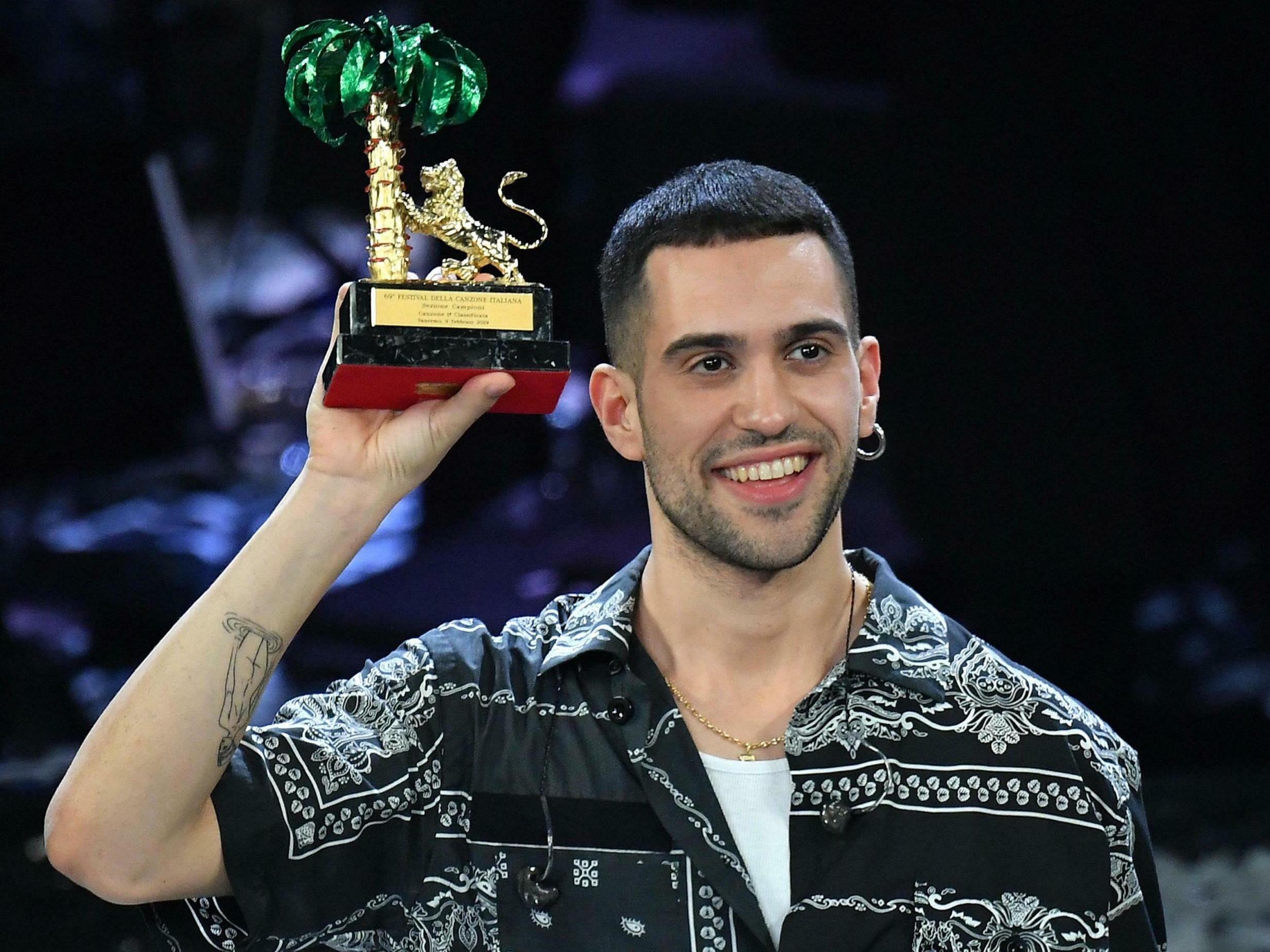It shouldn’t matter that Italy’s Eurovision rep is half Egyptian – but in Salvini’s far-right government, it means everything
Mahmood is a talented artist with a promising future, who has been forced into a being symbol not by the left, but by the same people who accuse the opposition of politicising his victory


Your support helps us to tell the story
From reproductive rights to climate change to Big Tech, The Independent is on the ground when the story is developing. Whether it's investigating the financials of Elon Musk's pro-Trump PAC or producing our latest documentary, 'The A Word', which shines a light on the American women fighting for reproductive rights, we know how important it is to parse out the facts from the messaging.
At such a critical moment in US history, we need reporters on the ground. Your donation allows us to keep sending journalists to speak to both sides of the story.
The Independent is trusted by Americans across the entire political spectrum. And unlike many other quality news outlets, we choose not to lock Americans out of our reporting and analysis with paywalls. We believe quality journalism should be available to everyone, paid for by those who can afford it.
Your support makes all the difference.Every February, millions of eyes around Italy are glued to their TVs, watching Sanremo’s “Festival della Canzone”, the country’s oldest, biggest and most beloved televised music contest. The country's precursor to Eurovision, the show has launched some of Italy’s household names – from Giorgia, deemed the country’s very own Whitney Houston, to Andrea Bocelli himself.
Excluding the years when the country was absent from Eurovision, Sanremo’s winner gets to represent Italy at the competition. In a nation which has lived through decades of intense political, cultural and socioeconomic divisions, Sanremo happens to bring people together for one week, sharing a common experience in their living rooms – and whether you love it or hate it, there’s no denying it’s quintessentially Italian.
This year’s winner is Mahmood, the stage name of Alessandro Mahmoud, a young, Milan-born singer-songwriter of Egyptian and Sardinian descent. His song, “Soldi” (“Money”) is an infectiously catchy R&B number about family divisions, described as “Morocco pop” by the artist himself, with a short interlude in Arabic and a decidedly Middle Eastern flair. He will be representing Italy in Tel Aviv with the country’s first song to be partially sung in Arabic at Eurovision.
If Sanremo serves as a certain kind of Italian cultural and social thermostat both at home and abroad, Mahmood’s victory stands in direct contrast to Italy’s current state of affairs: a country which is rapidly falling prey to myopic political forces aiming to increasingly constrict Italy to a monolithic image.
The current League-Five Star Movement coalition stands as Western Europe’s only populist government, with Matteo Salvini and his hard-right party rapidly gaining in the polls – 34.2 per cent, double the League's result in the 2018 general election.
The deputy prime minister is a man who has said that “there is too much immigration in Italy”, complaining of the country’s “Africanisation” and comparing the process to “helping those who don’t respect the law, who don’t pay tax, who don’t behave civilly, who are arrogant, who piss on buses, who harass old people”. Unsurprisingly, Salvini tweeted expressing his disapproval at Mahmood’s victory – “really… the most beautiful Italian song of the year? I’d have picked Ultimo [Sanremo’s runner-up], what do you think?”
“Soldi” embodies the new Italy – multi-ethnic, cosmopolitan, fusing cultures and backgrounds. It nods to Mahmood’s own mixed heritage, name-checking Ramadan, hookahs, watching Jackie Chan, champagne, and the Milanese suburbs. And yet, at the same time, it also stands as part of a very ancient Italian tradition. Arabic influences have played an integral part of some of the country’s most traditional folk music, after the Saracens conquered Sicily and the peninsula’s southern tip over one thousand years ago.
In a country which has been the melting pot of countless civilisations, from the Greeks to Phoenicians to Normans, the very essence of being Italian is intrinsically heterogeneous. As such, with their obsessive desire to put “Italians first”, the League and their propaganda campaign are suppressing what being Italian has always meant in the first place.
Perhaps it isn’t too much of a surprise – starting off in what was once a secessionist Northern movement, Salvini might want you to forget that 10 years ago he sang “can you smell that? / Even dogs run away / The Neapolitans are making their way!” as he now attempts to harness Southern votes with a re-polished “pro-Italian” agenda.
“I am 100 per cent an Italian guy,” Mahmood states in interviews. “At home I speak in Sardinian dialect.” He appears relatively apolitical in his stance, unassumingly standing peacefully in the eye of an enveloping hurricane which has seen the Italian right brand Sanremo’s jury as “elitist” and at odds with the public vote.
“I do not think I am a symbol for anyone… with ‘Soldi’ I just wanted to tell a story, I did not want to do politics or send messages,” he tells La Repubblica.
His nonchalance in this matter perhaps best represents the normality with which he sees his situation – among young Italians, especially from a city as cosmopolitan as Milan, being of mixed heritage is nothing unusual or new.
His argument is one which Salvini himself has manipulated, lambasting the “radical chic” who have supposedly “used” Mahmood for their political advantage, arguing that he is “a young Italian guy… born in Milan” who was launched into “a narrative which does not belong to him”.
The irony in all this is that it is the insidious nativist ideas of Salvini’s party which have made Mahmood’s victory a “controversy” in the first place. If the left have “used” his victory as a sign of the values of multiculturalism, it is only in response to the toxic, divisive sentiment which has been fostered over the past few years.
Mahmood is a talented artist with a promising future, who has been forced into a being symbol not by the left, but by the same people who accuse the opposition of politicising his victory.
Rather than being able to celebrate his music and rich heritage at the Eurovision Song Contest, he has inadvertently been launched into a debate which would not exist if Italy’s long standing problems were not scapegoated on immigration.
Join our commenting forum
Join thought-provoking conversations, follow other Independent readers and see their replies
Comments